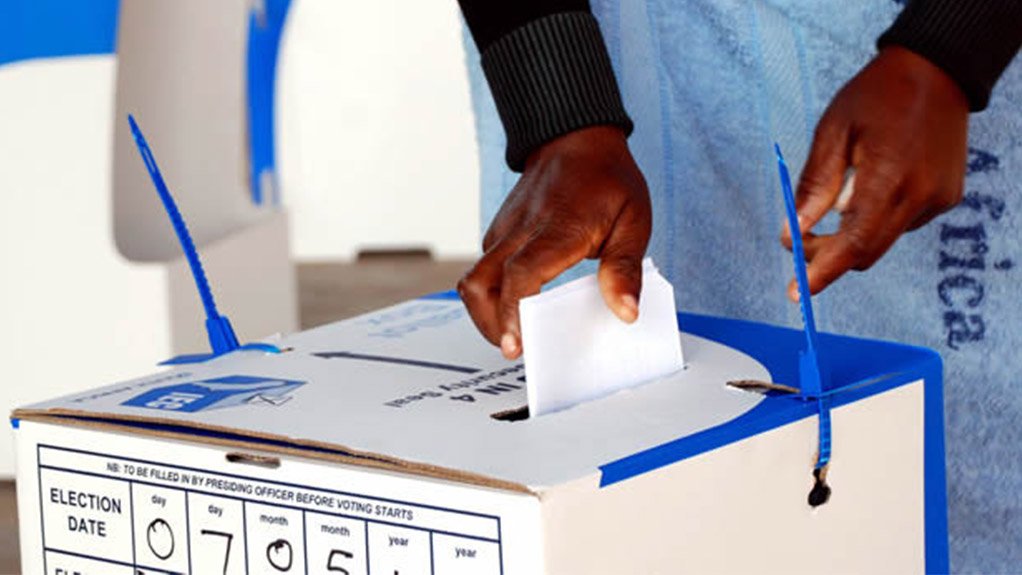The Institute of Race Relations (IRR) has warned against minor tweaks to the current electoral system, advocating rather for substantial reform to address declining voter engagement, such as a “mixed system”.
The IRR pointed out that electoral reform is crucial for revitalising South Africa’s democracy and addressing declining voter engagement, punting a single-member constituency system with a parallel party list, which it recommended for better accountability.
Speaking during a webinar, where he laid out proposals for electoral reform in South Africa, IRR analyst Marius Roodt said the introduction of constituencies is seen as a step towards improving responsiveness from public representatives.
The IRR proposes retaining the proportional representation element of the current electoral system, while ensuring that some MPs and MPLs are elected from geographical constituencies.
“While our current system ensures that the make-up of our various legislatures closely reflects parties’ overall support levels, the fact that MPs are not elected from coherent geographical constituencies has hampered responsiveness and accountability from our various elected representatives,” he argued.
He explained that the single-member system could constitute 200 single-member constituencies and 200 top-up seats.
This would produce a total of 400 seats in the National Assembly, the maximum permitted by the Constitution.
The share of all votes the party has received is 50% – the sum of all its own list votes and constituency votes, divided by all list and constituency votes cast in the country.
“This means it is entitled to a total of 200 seats in the National Assembly. Its 120 constituency seats are therefore topped up by adding 80 list seats. Under this system, the country would be divided into 200 individual constituencies of roughly equal population,” he explained.
The IRR said no constituency would cross provincial or metro municipality boundaries.
“Outside of the metros, constituencies would mostly be contained within district councils, with a few exceptions requiring the combining of adjacent district councils to form a pooled constituency.
“The particular adjustments would also take into account possible changes to the composition of provincial legislatures, and the formulas used to determine the numbers of National Assembly seats to be allocated to each province,” the IRR put forth.
Roodt said while constituency elections would not guarantee the much sought-after “accountability” of MPs, it would, at a minimum, increase the likelihood that elected representatives would be more accountable to their voters.
“In contrast, under the current party list system, the accountability of MPs is highly attenuated, and is moderated through party leaders’ control of the lists,” he explained.
Under a constituency system, he added, party leaders would still exercise a considerable amount of control over constituency MPs by offering or withholding resources, for instance during an election campaign.
Roodt said the IRR believes the single-member constituency system can change incentives and could force parties to put forward higher calibre candidates.
The system can also help solve the issue of declining voter turnout, which he said had become a significant problem in the country, as he noted the 2024 elections, which had the lowest voter turnout.
“…while the proportion of registered voters who turn out was not bad, at about 66%, the proportion of eligible voters was much lower. Lots of people who can vote do not register to vote. The 2021 elections were even worse, where only 30% of eligible voters’ turned out,” he said.
The IRR noted challenges faced by the electoral reform, including potential gerrymandering and the need for careful implementation.
Roodt expressed concerns about the complexity of proposed systems, which he said may hinder public understanding and acceptance, calling for the need for a balance between party strength and individual accountability for a functional democracy.
“At the end of the day it is up to South Africans to ensure that they vote for parties and politicians who take their responsibilities seriously and have the interests of the country at heart,” he said.
EMAIL THIS ARTICLE SAVE THIS ARTICLE ARTICLE ENQUIRY FEEDBACK
To subscribe email subscriptions@creamermedia.co.za or click here
To advertise email advertising@creamermedia.co.za or click here











